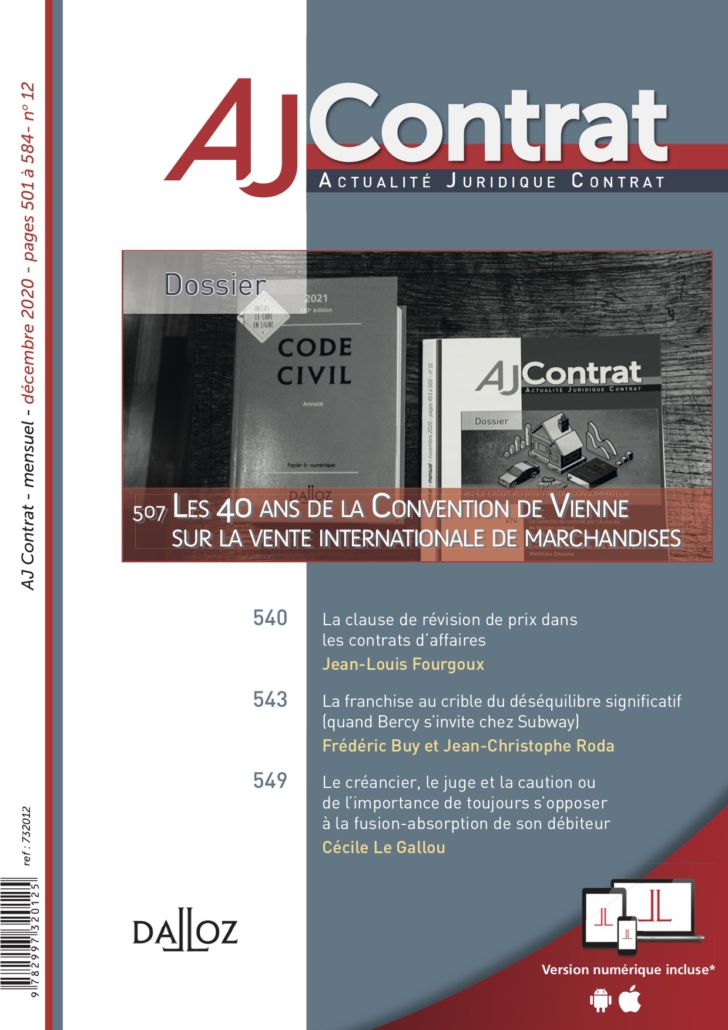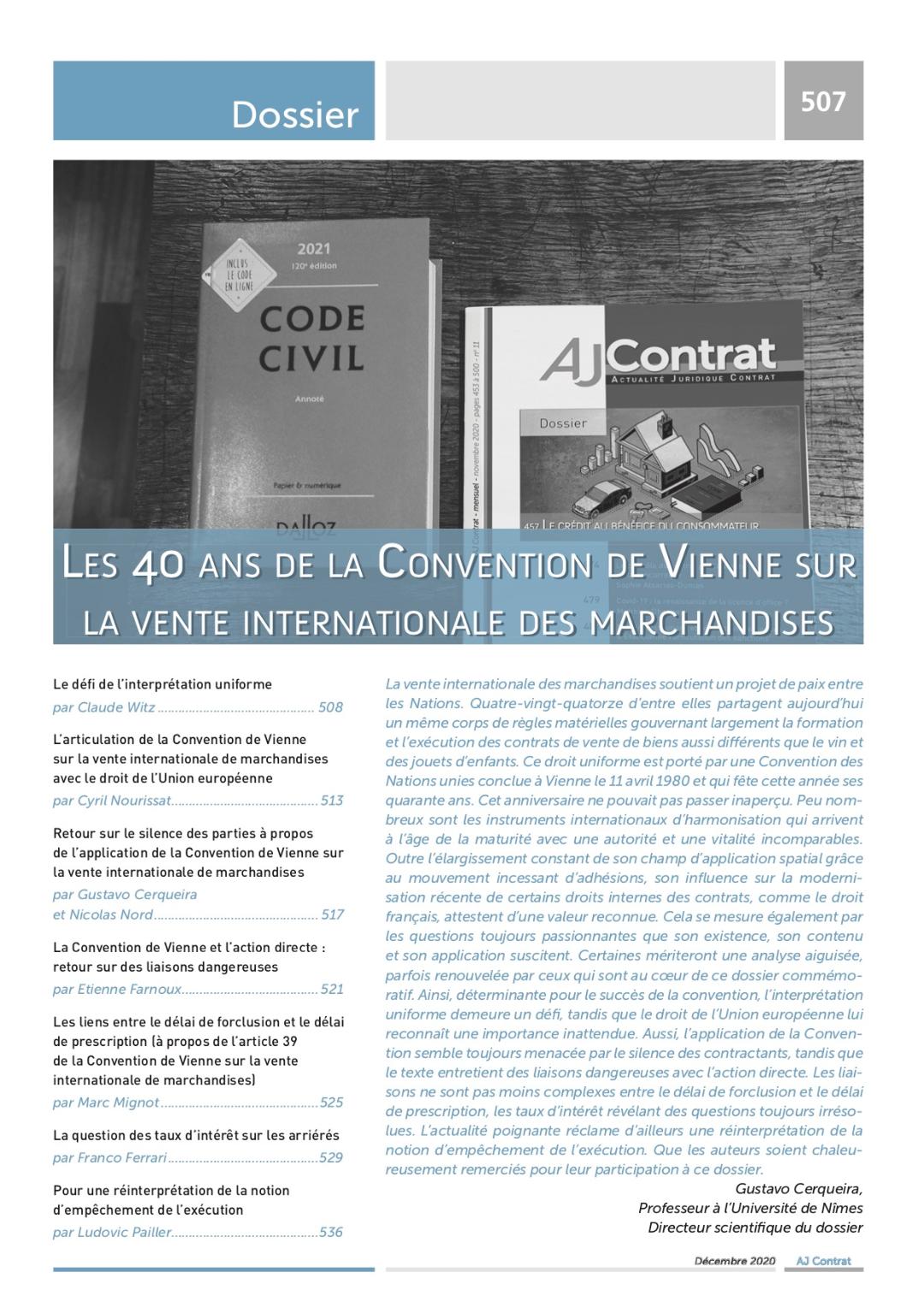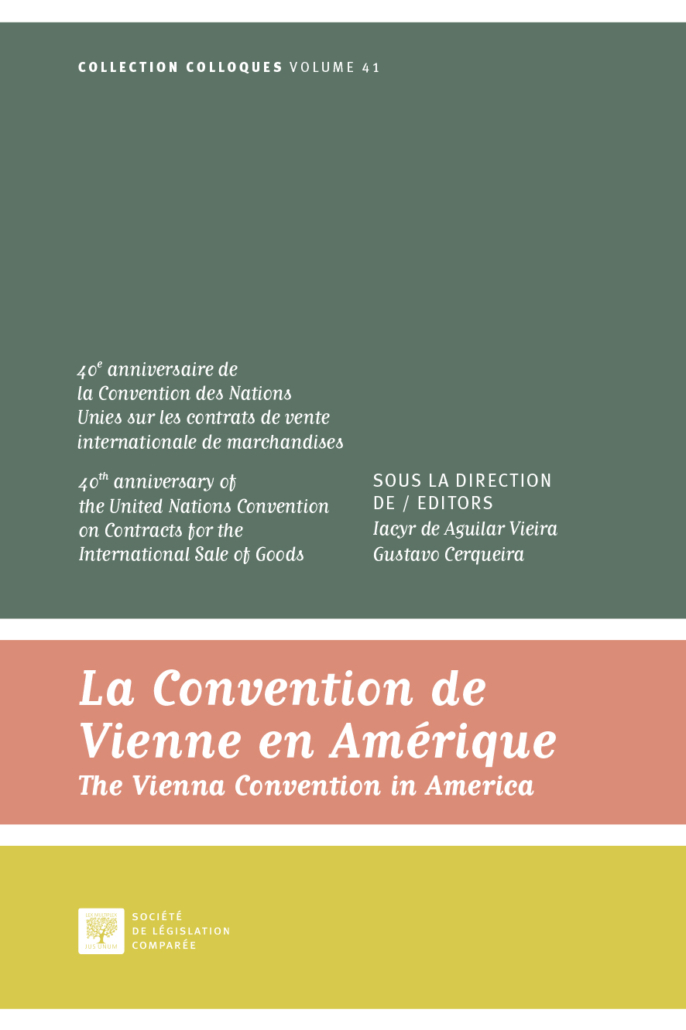The third issue of the Journal of Private International Law for 2020 features the following articles:
M Teo, “Public law adjudication, international uniformity and the foreign act of state doctrine”
Should courts, when applying foreign law, assess the validity or legality of foreign legislative or executive acts therein? The foreign act of state doctrine answers that question in the negative, but is often criticised as lacking a sound theoretical basis. This article argues, however, that the doctrine remains defensible if reconceptualised as a rule of private international law, which furthers the modest goal of international uniformity within the choice-of-law process. Assessing the validity or legality of foreign legislative and executive acts necessarily requires courts to address questions of foreign public law. Given the fact-specific and flexible nature of public law adjudication, courts cannot answer these questions, and thus cannot carry out such assessments, in a manner that loyally applies foreign law. The doctrine, then, makes the best of a bad situation, by sidestepping that problem with a clear rule of refusal which, if consistently applied, furthers international uniformity.
G Laganière, “Local polluters, foreign land and climate change: the myth of the local action rule in Canada”
This article addresses the jurisdiction of Canadian courts over transboundary pollution. It argues that a tort lawsuit brought by foreign victims of climate change against local greenhouse gas emitters could overcome jurisdictional obstacles, notably the local action rule, and proceed in Canada. The local action rule provides that Canadian courts have no jurisdiction to hear a claim involving foreign land, even when the claim lies solely in tort. It is thought to be a significant jurisdictional obstacle in transboundary environmental disputes involving foreign land. This assumption is misleading. A growing corpus of soft law instruments supports the notion of equal access to the courts of the state of origin for all victims of transboundary pollution. The courts of Canadian provinces have jurisdiction over pollution originating in the province, and the case law is more divided than generally assumed over the effect of the local action rule in tort litigation. The conclusions of this article have important implications for transboundary environmental disputes in Canada and other top greenhouse gas-producing countries. They also highlight a modest but potentially meaningful role for private international law in our global response to climate change.
S Khanderia, “Practice does not make perfect: Rethinking the doctrine of “the proper law of the contract” – A case for the Indian courts”
An international contract calls for the identification of the law that would govern the transaction in the event of a dispute on the matter between the parties. Indian private international law adopts the doctrine of “the proper law of contract” to identify the legal system that will regulate an international contract. In the absence of any codification, the interpretation of the doctrine has been left to the courts. The judiciary adopts the common law tripartite hierarchy, viz., the “express choice”, “implied choice” and “the closest and most real connection” test to determine the proper law. However, the existing case law demonstrates the diverse interpretations given to each of these factors in India in the post-colonial era. The paper examines the manner in which the blind adoption of the decisions of the English courts has considerably hindered the development of Indian private international law. In this regard, the author suggests some plausible solutions to render India more amenable to international trade and commerce – such as the adoption of mechanisms similar to those formulated by its continental counterpart.
KD Voulgarakis, “Reflections on the scope of “EU res judicata” in the context of Regulation 1215/2012”
It is now established in the case law of the Court of Justice of the European Union (CJEU) that the law pursuant to which the effects of a recognised judgment are determined is that of the Member State where the judgment was rendered. In Case C-456/11 (Gothaer), however, the CJEU deviated from this rule and developed an autonomous (EU) concept of res judicata. The potential for this concept to extend to other jurisdictional determinations by Member State courts has therefore created additional layers of complexity in the area of recognition of judgments. This article seeks to shed light on this topic by drawing conclusions from the Court’s rationale in Gothaer and considering whether a more broadly applicable autonomous concept of res judicata can be consistent with the general system of Regulation 1215/2012 and the CJEU’s previous case law.
K Tan, “All that glisters is not gold? Deconstructing Rubin v Eurofinance SA and its impact on the recognition and enforcement of foreign insolvency judgments at common law”
It was Lord Hoffmann who once spoke of a “golden thread” of modified universalism running throughout English Insolvency Law since the eighteenth century. However, after the UK Supreme Court’s decision in Rubin v Eurofinance SA, that golden thread seems to have lost its lustre. This paper critiques the main premise of the Rubin decision by questioning whether the Supreme Court was correct in holding that there can be no separate sui generis rule for recognising and enforcing foreign insolvency judgments. This article also explores the possible solutions, either through statute or the common law, that could be used to remedy the post-Rubin legal lacuna for recognising and enforcing foreign insolvency judgments.
B Alghanim, “The enforcement of foreign judgments in Kuwait”
This article provides an overview of the rules in Kuwait regarding the enforcement of foreign judgments. This issue is significant due to the fact that foreign litigants still experience significant challenges in successfully enforcing foreign judgments – particularly as such parties have a limited understanding of the manner in which the Kuwaiti courts will interpret the conditions required to enforce such judgments.
An analysis of case law in this area highlights that the reciprocity condition is usually the most significant hurdle for applicants when seeking the enforcement of foreign judgments. Such difficulties have catalysed the Kuwaiti Parliament to introduce an exception to the general rule regarding the reciprocity condition; reform which this article heavily criticises.
PN Okoli, “The fragmentation of (mutual) trust in Commonwealth Africa – a foreign judgments perspective”
Mutual trust plays an important role in facilitating the recognition and enforcement of foreign judgments. The 2019 Convention on the Recognition and Enforcement of Foreign Judgments also reflects some degree of mutual trust, although not explicitly. Commonwealth African countries seem to be influenced by mutual trust but have not yet adopted any coherent approach in the conflict of laws. This incoherence has impeded the recognition and enforcement of foreign judgments especially in Africa. This article seeks to understand the principle of mutual trust in its EU context and then compare it with the subtle application of mutual trust in the recognition and enforcement of foreign judgments in Commonwealth Africa. The article illustrates this subtle and rather unarticulated application of mutual trust primarily through decided cases and relevant statutory provisions in the Commonwealth African jurisdictions considered. The article then considers how the subtle application of mutual trust has sometimes resulted in parallel efforts to promote the recognition and enforcement of foreign judgments and how a proliferation of legal regimes can undermine legal clarity, certainty and predictability. A progressive application of mutual trust will help to ensure African countries maximise the benefits of a global framework on foreign judgments.
A Moran & A Kennedy, “When considering whether to recognise and enforce a foreign money judgment, why should the domestic court accord the foreign court international jurisdiction on the basis that the judgment debtor was domiciled there? An analysis of the approach taken by courts in the Republic of South Africa”
The Roman-Dutch common law of the Republic of South Africa states that a foreign judgment is not directly enforceable there. In order to have a foreign money judgment recognised and enforced, the judgment creditor must, inter alia, demonstrate that the foreign court had jurisdiction to adjudicate the matter (ie that it had “international jurisdiction”). South African courts have held that the judgment debtor’s being domiciled, at the time of commencement of the proceedings, within the territory of the foreign court confers the said international jurisdiction on that foreign court. This position has been criticised. This paper assesses the validity of that criticism.
RF Oppong, “The dawn of the free and fair movement of foreign judgments in Africa?”
A new book on foreign judgment enforcement in Nigeria and South Africa seeks to ground their foreign judgment enforcement regimes – and perhaps other African countries – on a new theoretical foundation and inform judicial decisions in new directions. In a quest to promote the free movement of judgments, judges are urged to presumptively enforce foreign judgments subject to narrowly defined exceptions. This review article examines the new theory of qualified obligation and some selected issues arising from the discussion, recommendations, and findings of the book.
On a personal note, it is a delight to see three articles on the subject of Private International law in Africa published in this issue!





